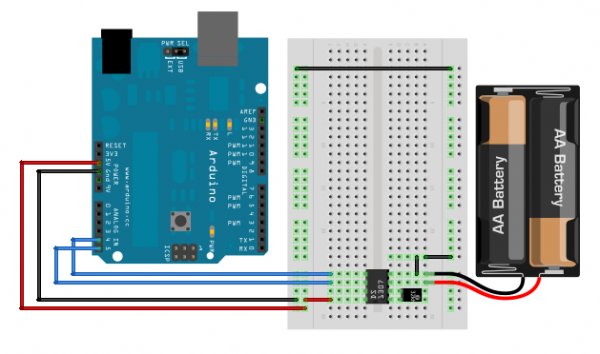I wanted to learn how to interface with I²C devices using my Arduino, so I bought a DS1307 clock and crystal kit from Earthshine Electronics. I’ve no association to them, but I’d recommend having a look at their shop. Their prices are very reasonable, unlike most Arduino component retailers.

Below is a schematic of the circuit diagram. It looks slightly different to my actual circuit, but that was only because Fritzing didn’t have the components in the library, so I either replaced them with functionally identical components or else made them using a generic component. A Nokia 3310 LCD shield was added to display the time, but again, this doesn’t exist in Fritzing.
The DS1307 uses a 32.768kHz crystal connected between pins 1 and 2 to create the oscillations needed to drive the clock. The downside to this, of course, is that temperature variations will cause the clock to lose or gain seconds. In my experience however, this was negligible. Once set, the DS1307 will keep time provided that it is powered either by the Arduino, or the 3V button backup battery. I wrote the Arduino sketch to accept the date in the standard output format from the *nix date command. That meant that to sync the clock, I simply had to pipe the date command to the serial port.
sudo date > /dev/ttyUSB0 //Fri Sep 3 14:18:22 IST 2010

\[f(x,y,z)=x+y+z \\Where\:x,y,z\:corresponds\:to\:a\:3\:letter\:input.\]
For more detail: DS1307 I²C Clock
